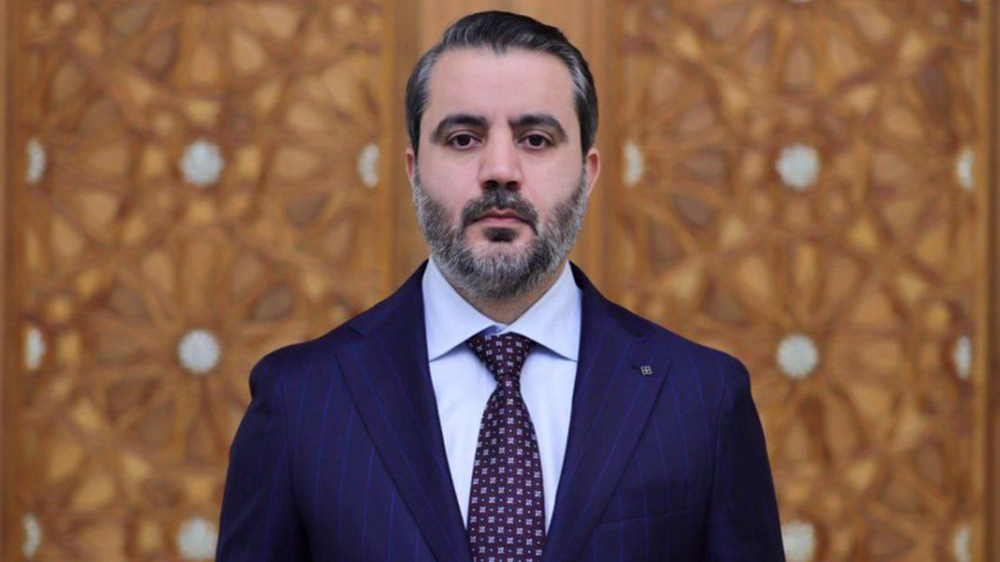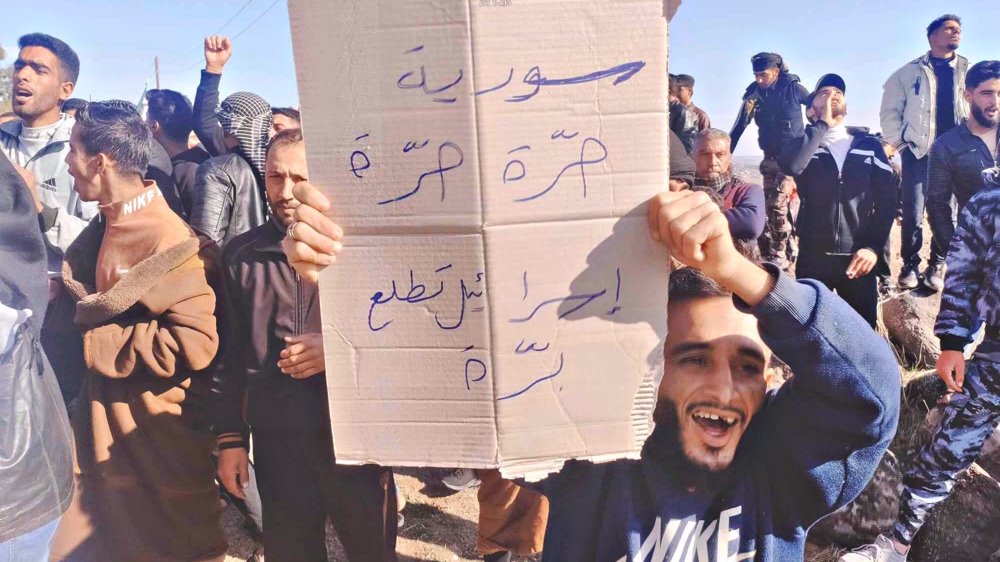Combating terrorism tops Geneva talks agenda: Syria
Syria’s ambassador to the United Nations and head of the Syrian delegation to the intra-Syrian peace talks in Geneva says fighting terrorism should top the agenda of the ongoing negotiations, shortly after bomb attacks killed dozens of people in the country’s western city of Homs.
Bashar al-Ja’afari made the remarks at a press conference at the UN headquarters in the Swiss city of Geneva on Saturday, following a 2.5-hour meeting with the UN Special Envoy for Syria Staffan de Mistura and a few hours after the Jabhat Fateh al-Sham Takfiri terrorist group, formerly known as al-Nusra Front, launched simultaneous bombings targeting separate areas across the government-controlled Homs, killing over 50 people.
The Syrian senior official said the attacks had not been “just a military terrorist act” but a “political” one aimed at derailing the peace discussions.
“This is the main reason that drives us to have the article of fighting terrorism as a priority in our agenda for the Geneva talks,” Ja’afari further added in the third day of the peace negotiations between the Syrian government and the so-called High Negotiations Committee (HNC), which serves as an umbrella group for militants and opponents of Syrian President Bashar al-Assad.
He said any party, which falls short of denouncing the bombings, would be considered as “an accomplice of terrorism.” Ja’afari also requested De Mistura, the moderator of the talks, to issue a statement condemning the bomb attacks and to ask all the parties participating in the Geneva peace process to make the same statement censuring the bombings.
“How can we talk with anyone about anything if they don’t condemn terrorism,” Ja’afari further said.
Elsewhere in his remarks, the head of Syrian delegation also touched upon the issue of assistance provided by some regional countries to the terrorist organizations operating inside Syria, particularly the Daesh Takfiri terrorist group.
“We asked a Security Council sub-committee for fighting terrorism to investigate the fate of 32,000 new Toyota cars that were sold from Toyota Company to Daesh. How did these cars reach Daesh? After a year of asking that question, the answer was that Toyota sold these cars to Saudi Arabia, the United Arab Emirates, Qatar, and Turkey,” he said, urging the UN to deal with these state sponsors of terrorism.

Ja’afari also reminded the audience of the aerial photos taken by Russian satellites of hundreds of oil and gas trucks that were stealing oil and gas from Syria and made their ways to “Turkey and from Turkey to Israel,” adding, “These were Daesh trucks.”
According to al-Ja'afari, the next session of the talks is scheduled for Tuesday by De Mistura.
Before holding the meeting with the Syrian delegation, De Mistura, for his part, said that Homs terrorist attacks were aimed at “spoiling” the peace talks, adding that every time there were talks, they were spoilers, who want to spoil the process.
The new round of the UN-brokered intra-Syrian talks come shortly after the conclusion of the second round of the Syria peace negotiations, mediated by Russia, Turkey and Iran, in the Kazakh capital city of Astana on February 15 and 16. Astana talks, which were held in a closed-door setting, sought to pave the way for the negotiations in Geneva.
Since 2011, Syria has been fighting foreign-sponsored militancy. The UN special envoy to the Arab country estimated in August last year that more than 400,000 people had been killed in the crisis until then. The world body stopped its official casualty count in the war-torn country, citing its inability to verify the figures it received from various sources.
VIDEO | Public uproar in US against Israeli regime
‘Ghost town’: 70% of Jabalia buildings destroyed by Israel
Mother’s Day: Sareh Javanmardi’s inspiring journey as Paralympic champion and mother
Russia downs over 40 Ukrainian drones as Putin vows 'destruction' on Kiev
VIDEO | Yemen: A bone in Israeli neck
D-8’s role in Iran’s economy after Cairo summit
China slams US as ‘war-addicted’ threat to global security
China ‘firmly opposes’ US military aid to Taiwan
















 This makes it easy to access the Press TV website
This makes it easy to access the Press TV website